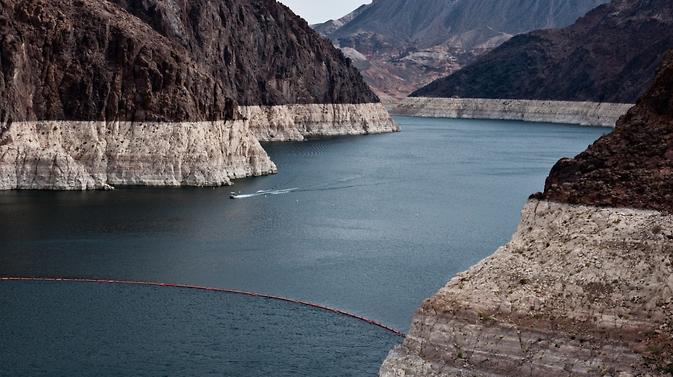
The Colorado Water Congress has voted to expand its board to include representatives of Native American tribes for the first time.
The water congress was created in the late 1950s by then-Gov. Steve McNichols and Attorney General Duke Dunbar, to bring the entire water community together as a group to make recommendations to state leaders about water issues that needed to be addressed in Colorado.
Executive Director Doug Kemper said the nonprofit group has about 350 organizations as members, ranging from water utilities like Denver Water to agricultural and environmental groups.
The policy and planning group is governed by a board of directors who are supposed to represent the different geographical areas and water users of the state. But the Native American tribes in Colorado, the Southern Ute Indian Tribe and the Ute Mountain Ute Tribe, weren’t included.
The board recently voted to change its bylaws to include tribal representatives as board members. Kemper said the move would give other group members a chance to listen and better understand the tribes' needs and concerns.
“They're both sovereign nations,” Kemper said. “They have distinct priorities themselves on water matters.”
When the Colorado Water Congress was formed, the group assumed that the board member from southwestern Colorado could relay the tribes’ perspectives on water issues. Kemper said excluding the Southern Ute and the Ute Mountain Ute from representing themselves was contrary to the group’s goal, which is to include all water users in the state.
Chairman Manuel Heart of the Ute Mountain Ute Tribe said direct representation on the board is an important change — and that tribal nations have long been denied inclusion in critical water discussion. He said the tribes need to be brought to the table because water concerns in the Colorado River basin affect his members and many others who rely on the Colorado River.
Heart is also the chairman of the Ten Tribes Partnership, a coalition of tribes from the lower and upper basins of the Colorado River. He said having direct representation on the Colorado Water Congress board will help prioritize concerns in Colorado that affect other tribes further downstream in the Colorado River system.
“It starts up here in the headwaters, the headgates so to speak, and that's the mountains here,” Heart said. “That water is going to flow down to the lower basin, but we need to fix it up here. How are we going to move forward, and how are we going to meet the need?”
The water supply in the Colorado River has dropped significantly. A climate change-fueled drought has plagued the basin for over 20 years. Reservoirs like Lake Powell and Mead, which supply water and energy to millions of people in the West, are at all-time lows. Heart said it’s time all water users work together to confront the problem.
The timing of the board membership change is crucial, Heart said. This year is the 100-year anniversary of the Colorado River Compact’s signing. Tribes in the Colorado River basin were excluded from that agreement, which divided up the river among the seven states of Colorado, Utah, Wyoming, New Mexico, Arizona, Nevada and California.
The Congressionally sanctioned deal paved the way for massive federal spending on water infrastructure that has mostly benefited the states. Federally funded dams were built to create Lake Powell and Lake Mead so the states could manage the river's flow to help uphold the compact's rules.
Heart said the tribes are pushing for inclusion in the upcoming Colorado River policymaking negotiations, from which they have also historically been excluded.









